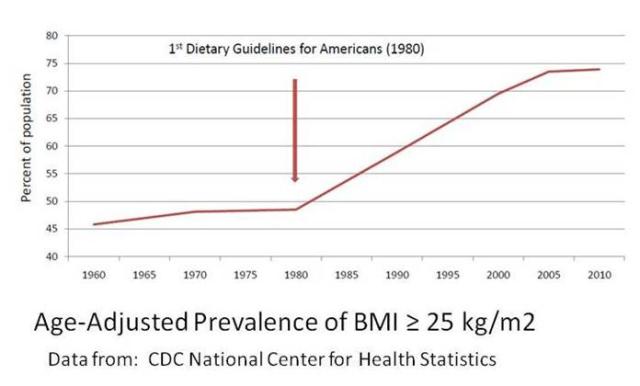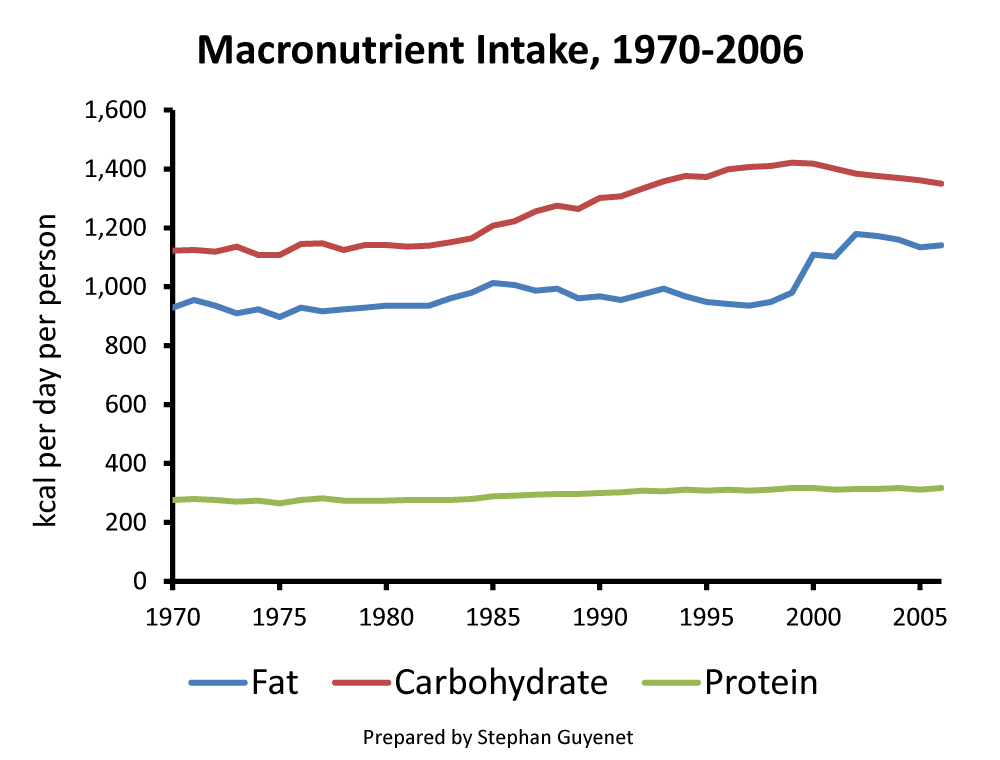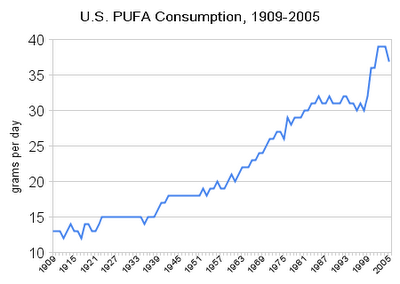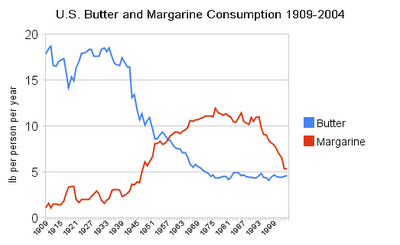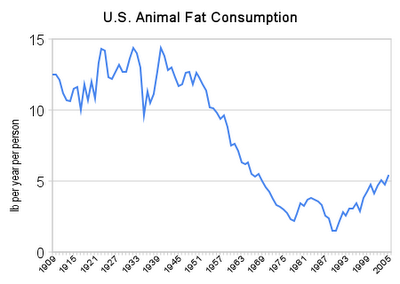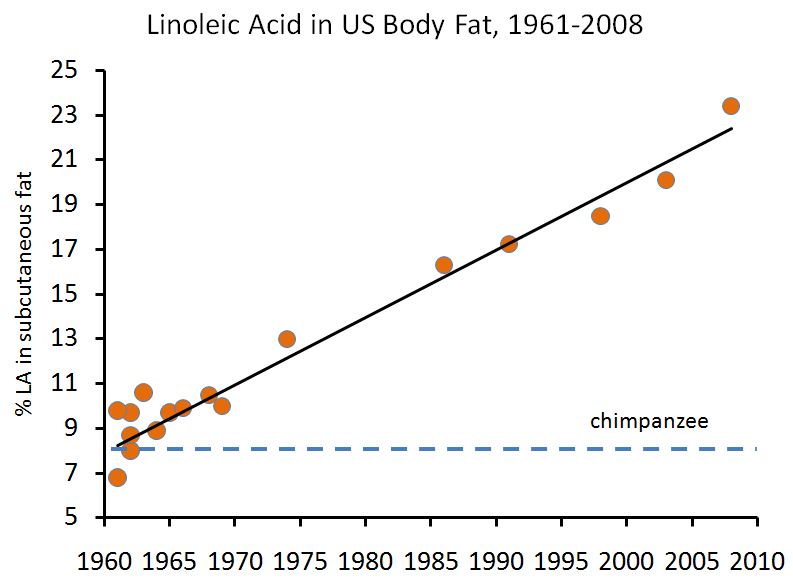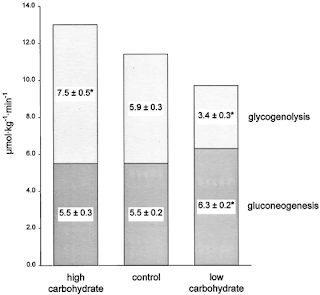DePaw, first off I agree with you that too much omega-6 is bad. Americans (and probably nations who are industrializing and westernizing) are eating more omega-6 than ever before. The USA dietary records show a huge increase in omega-6 laden vegetable-oil use. But even thou butter and lard aren’t used in cooking anymore… the USA and other developed nations are still eating more saturated-fat than ever, mainly in the form of beef, chicken, cheese, eggs and ice-cream. This is what the records show. And you can't convince anyone that eating 33 pounds of cheese a year, isn't a shitload of saturated-fat.
33 pounds of cheese a year is only ~41 grams a day, I don't consider that a lot. Look at France, they eat a lot more cheese and don't suffer the same heart disease.
Secondly, in regards to the first graph you showed above (the one that showed the different macronutrient intakes), carbohydrate did go up, but not in the form of whole-grains or beans, but rather in the form of refined-sugar and processed-wheat used to make junk-food and hamburger-buns. So that chart is misleading.
Agreed, refined foods are bad and increasing.
So I agree with you that vegetable-oil and products containing omega-6 oils are harmful, but I can assure you that saturated-fat and grease is no better for you. Simply put, fat in general is not the fuel the bodies like to use. It would much prefer to use glucose, which is mainly found in whole-grains, beans and tubers in the form of starch
This is where I don't agree with you, I see no harm in saturated fats. Yes the body will burn glucose before fats, but it will burn ethanol before glucose too, does that mean alcohol is our preferred fuel? When in ketosis, glucose requirements are drastically lessened, as our major need for glucose is for our brain, to the order of ~120g/d, but in ketosis ketones can replace about 70% of this requirement leaving ~36g/d glucose needed, which can easily be made from protein via gluconeogenesis or from glycerol in triglycerides. There is no DIETARY requirement for glucose, even during complete starvation blood glucose levels remain stable right until they die, usually from heart failure as the body cannibalises bodily proteins for gluconeogenesis, first the muscles then eventually the heart. People can and do survive and even thrive on diets will no dietary carbohydrates what so ever, such as eating only meat. They don't even get scurvy! (
http://www.jbc.org/c...1.full.pdf html)
I'll also repeat what I'm posting on the 'Wheat Belly' thread as I feel is has an important in this discussion too:
"Many of you are lumping fats and sugar together, and I feel this is very unjust. Yes a high fat, high sugar diet will cause many problems, and is that exact diet used by scientists to study metabolic syndrome, but high fat LOW CARB diets cure metabolic syndrome. The Standard American Diet (SAD) is very rich in vegetable oils and omega-6 fats, as are the diets used on rats. Is is the fat, or the type of fat? Is it the sugar? Is it the too together? A low fat high starch diet will also cure obesity, diabetes, etc, both lack sugar. So maybe it is just the sugar, or maybe it's sugar+omega-6? Maybe there are two ways you can go about healing metabolic syndrome: fat and little carbs, or carbs and little fat, but not both high together."
I will agree with your on the legumes and tubers, but not grains. I don't see those are suitable foods, legumes are much better. And of course any legumes (and grains) you eat should be proper prepared by soaking, sprouting, or fermenting, to remove the phytic acid which inhibits mineral absorption.




































